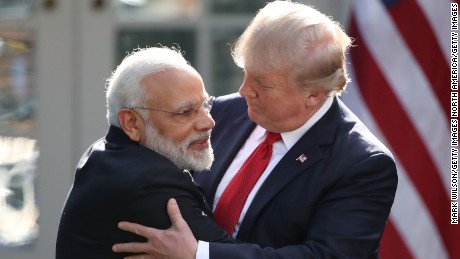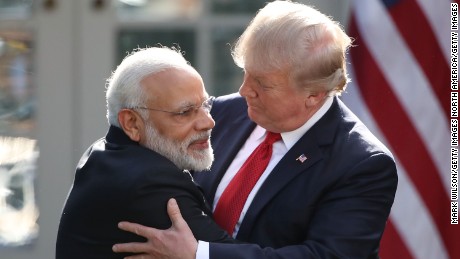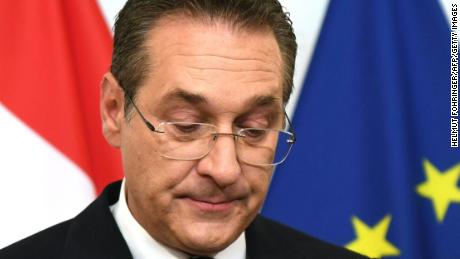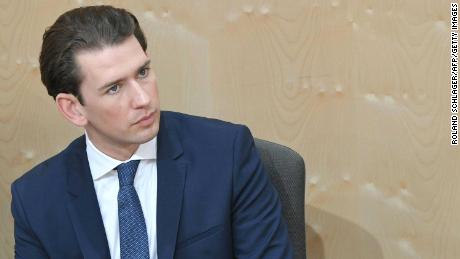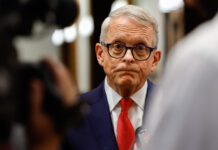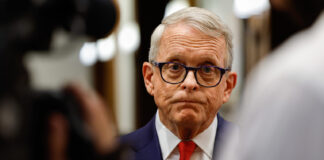More than 400 million voters in 28 countries were eligible to vote over four momentous days that have now begun to yield a taste of just where the continent is headed.
For Donald Trump, May has been a momentous month. First, his great friend Narendra Modi, the ultranationalist prime minister of India, swept to a landslide reelection victory.
And now, in France, Italy and across parts of central and eastern Europe, nationalists cemented their hold over an important (though not as dominant as they’d hoped) voting bloc in the European Parliament. After India’s, the European Parliament’s elections are the world’s second largest democratic vote.
The real story of this year’s election for the European Parliament, however, is the weakening of the vast middle that has ruled Europe since its creation and that has held together through any number of internal and external crises.
Many of these crises have helped to shape this year’s contests — waves of immigration that have galvanized the far right, growing gulfs between haves and have nots, rising oil prices, and spreading fears of environmental catastrophes.
In my 40 years of reporting all over Europe, the arrival of this new European Parliament seems to hold the promise of the most seismic shifts on the continent I have ever seen. No single group appears to have achieved a controlling interest in a pan-European body that will increasingly find forces of left and right contesting for dominance.
In France, even the narrow victory of right-wing leader Marine Le Pen will make it that much more difficult for the nation’s centrist president, Emmanuel Macron. His party managed a close second-place finish, but as his grim-faced prime minister, Edouard Philippe, told a national television audience Sunday night, “When you finish second, you can’t say you won.”
Macron will struggle now to play the role he lusts after: power broker to all of Europe. This role is essential in the upcoming choice of a replacement to Jean-Claude Juncker as head of the European Commission — and shaping the future of the EU going forward.
Macron had hoped to emerge as Europe’s unchallenged leader when German Chancellor Angela Merkel steps down next year as she has promised. As a first step, Macron anticipated that even a narrow victory Sunday might re-legitimize his rule in France, which has suffered from months of upheavals at the hand of the yellow vest movement and scandals within his inner circle.
“For a European Renaissance” was the title of the platform Macron published March 5 in all 28 European states. Not to be outdone, the head of the German CDU party Annegret Kramp-Karrenbauer, countered with “Let’s do Europe right now,” a chance she may have, if as expected she succeeds Merkel as Germany’s leader.
Just as Macron was proposing a vast centrist heart for Europe, Steve Bannon was also crisscrossing the continent, campaigning for a right-wing surge that could carry it to a dangerous dominance in the new parliament. After all, the bright and shining dream of the far right is quite simply a continent-wide Brexit just as Britain moves toward its anticipated departure from the European Union. Ultimately, this dream of the European right is centered on an end to or dramatic weakening of a single, fully united Europe.
Such an ultranationalist dream has captured many voters’ imagination, sweeping its leading figures into power from Poland across Hungary and to Italy as well. Now, it threatens to seize hold in France, together with Germany the two motor nations of Europe. But in pure numbers, while they will assume an important role in the new body, it is clear after Sunday their influence will be far from dominant.
But perhaps the most surprising story emerging on the back benches of the new European Parliament is the so-called green wave — the surge of Europe’s Green Parties to second- or third-place finishes in a number of countries, leapfrogging other more establishment groups. They placed third in France, second behind Merkel’s center-right Christian Democrats in Germany and tied for second in Ireland.
The Green showing was especially striking In Germany, where the vocal far-right party finished a distant fourth. The right finished first in Austria, where right-wing Chancellor Sebastian Kurz’s party managed a substantial first-place finish even after a widely-publicized scandal, but Kurz’s government did not survive a vote of no confidence in the Austrian Parliament on Monday.
Italy’s far-right leader and Interior Minister, Matteo Salvini, trumpeted that after his first-place finish in his country, he had spoken with like-minded Le Pen in France and Hungary’s Prime Minister Viktor Orban, fresh from a warm meeting in the Oval Office with President Trump. “This is a vote that allows us to try to change Europe,” Salvini said. The resounding victory of Nigel Farage’s Brexit party in the UK will translate into no votes in the European Parliament if Britain does succeed in exiting Europe.
Despite the surging role of the extreme right in some countries, it is still hardly a force that Europeans broadly are prepared to accept wholeheartedly. For the first time since 1979, though, the center left and center right “no longer have a majority together. No solid majority is possible without our new group,” Guy Verhofstadt, president of the ALDEGroup and Europe’s Brexit coordinator, tweeted.
Indeed, if there is one lesson to be learned from these elections, it is that as in much of the world, fracturing the vast political center is the rule of the day — making any real consensus far more difficult to achieve, and a central role on the world stage for even Donald Trump’s America even more difficult to realize. What leaders and observers alike will need going forward are deeply sensitive political antennae to judge the direction the new Europe may be taking.
Views: 448


